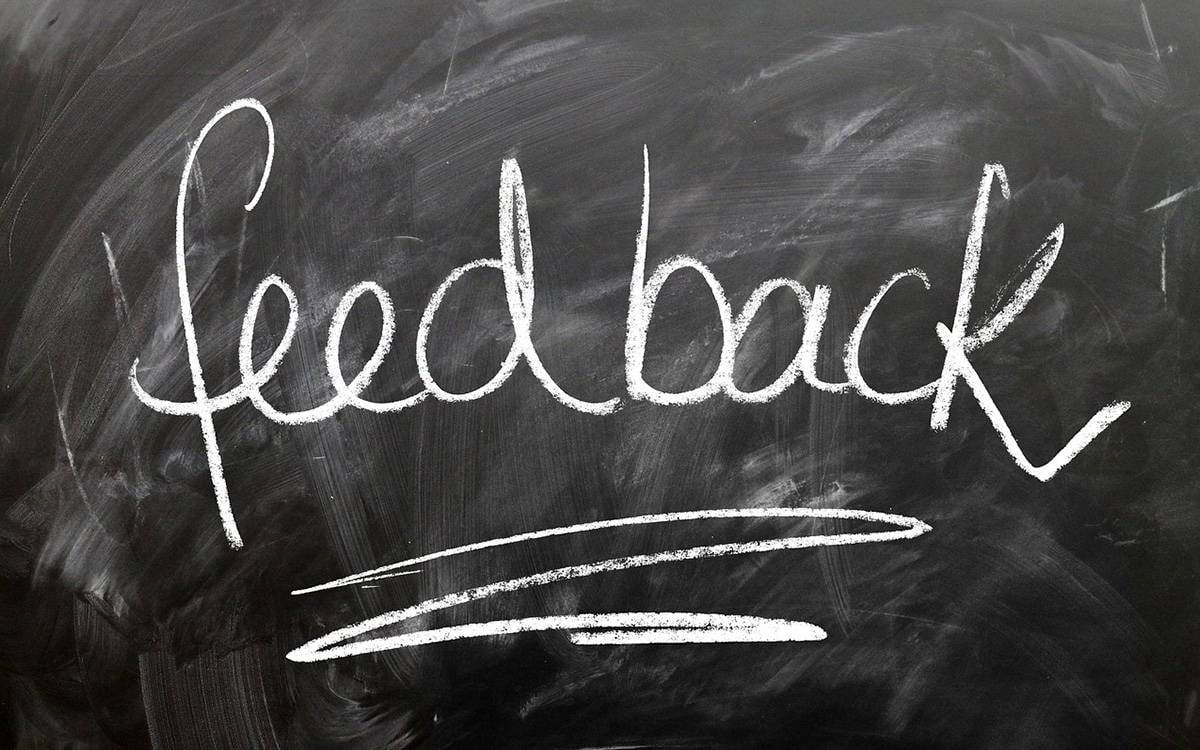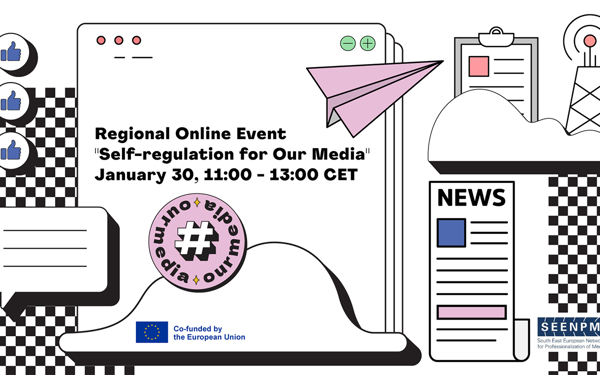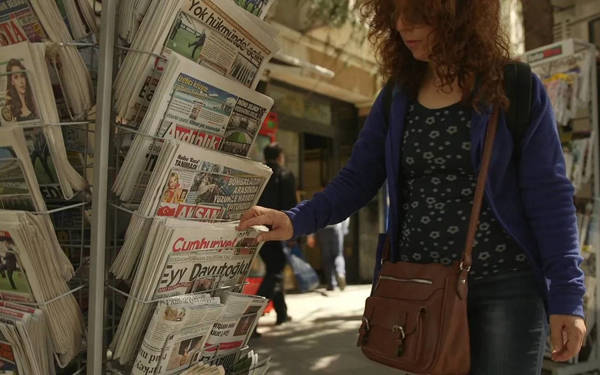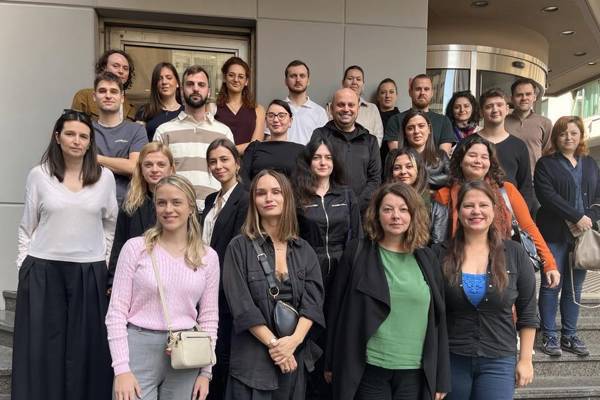When the eTrafika portal published a story about the successful medical student Maja Perišić five years ago, this media team believed that it was another ordinary text aimed to represent talented young people from Bosnia and Herzegovina. However, ten minutes after the publication of the text on social networks, the editorial office and editor-in-chief of eTrafika began to receive messages and comments from numerous dissatisfied readers who claimed that the story was not true or were convinced that it was a paid article with the aim of promoting a person who did not deserve it.
Editor Vanja Stokić then found herself in a challenging situation because she had to solve several problems - respond to readers' mostly aggressive messages, take care of the young student journalist who wrote the text as part of the eTrafika educational program and who at that moment thought that the story would mark her entire journalistic career, but also to check the accuracy of the story and see where the error had occurred.
The story of Maja Perišić had already been covered in the media, and the text on eTrafika was supposed to be an upgrade of already existing information about her. In the disputed text, Perišić makes a series of claims that will later turn out to be incorrect. For example, that she is employed at the Faculty of Medicine in Banja Luka and that she will become the youngest Doctor of Medical Sciences in the history of Bosnia and Herzegovina.
"Basically, from the whole story, the only thing that was valid was that she was the champion of Republika Srpska in providing first aid," Stokić recalls.
Stokić asked colleagues from other media for help
Having encountered this sort of situation for the first time, Stokić asked for advice from colleagues, who then told her that she should "pretend nothing happened" because readers will soon forget about everything, or to delete the text.
"For me, that was not OK. If you made a mistake, if you are engaged in public work, admit the mistake", Stokić says and adds that she did not want the text published on her portal to lead some other journalists to write a positive story about the same person again in the future.
A correction of the text along with an apology to the readers followed, but also a lesson for the future.
"This is a case which we go over in every new program, and we pay special attention to it. I always tell people that we don't need a new Maja Perišić. We got burned quite a bit and we are trying not to let it happen again", Stokić says.
Although the reactions of the readers were harsh and Stokić personally received many unnecessary insults, she points out that she is glad that the audience reacted because without it she would not have known that she had done something wrong.
"If people just receive media content indifferently and pass over it, we have not done our job well. I like it when we get any kind of reaction from people, whether they criticize us or praise us, all is equally valuable to us." She also sees mistakes as an opportunity for progress: "I don't like to surround myself with people who just nod at me and pat me on the shoulder even though I do something wrong, because that doesn't lead to progress. You progress when someone challenges you and points out your mistakes, because that's how you improve your work."
The reactions of citizens and non-governmental organizations are important in the fight for a more professional media content
A major change in media coverage cannot occur on the basis of just one report to a self-regulatory body. For this, it is necessary that as many citizens and non-governmental organizations as possible come forward, says Maida Bahto Kestendžić, project coordinator from the Press and Online Media Council from Sarajevo.
"Only now, if we look back and analyze the complaints we receive and which violations there are, can the Council see positive developments in terms of reducing the number of drastic violations of the Code for print and online media. Previously, cases of violation of provisions related to the protection of certain vulnerable groups occurred much more often, for example, when it comes to minors and various forms of discrimination during reporting," explains Bahto Kestendžić.
A big step forward has been made in the regulation of hate speech in journalistic texts. When it comes to the Code for print and online media, editorial responsibility has been extended to comments of internet portal visitors, and it is evident that editors are developing mechanisms to fight against hate speech and violation of the rights of other participants in the discussion of freedom of expression.
The Press and Online Media Council states that it is also important that they have enabled being contacted anonymously by people who belong to vulnerable categories, i.e. with the possibility of the Council protecting their identity, so that unprofessional information is corrected, but without additional harm being imposed on people who might encounter certain problems in the local community or could be additionally stigmatized.
About 70 percent of complaints to the Serbian Press Council are submitted by individuals, about 20 percent by non-governmental organizations, and 10 percent by others. Complaints should, first of all, provide satisfaction to the one who has been harmed by the published content, also the media should learn a lesson and not repeat the mistake, although such an expectation is unrealistic, believes Gordana Novaković, general secretary of this self-regulatory body in Serbia. Nevertheless, she singles out cases in which the decisions had an effect, such as when the editorial board of a daily newspaper, after several decisions of the Appeals Commission that highlighting the Roma nationality of the perpetrators of criminal acts was wrong, decided to send a notice to the editors and journalists that they must not write like that.
"In other redactions, as far as I know, similar notices were delivered in connection with the disclosure of the identity of minors, also based on our decisions. Unfortunately, this is not consistently followed.”
Based on the monitoring of daily newspapers in Serbia, it is evident that the number of violations regarding presumption of innocence has decreased, to which numerous decisions of the Appeals Commission referred, as well as hidden advertising, for which there are now no appeals.
"It doesn't mean, of course, that it doesn't exist, but there are significantly fewer such cases," Novaković says.
Guidelines for reporting after citizen complaints
Citizens of Kosovo filed complaints to the Press Council regarding the manner in which certain media report about suicide cases. There were also complaints about reports in crisis situations during events in the north of the country in September last year. At that time, not all media were reporting in compliance with ethical codes and there were instances of publishing of fake photos, according to the director of the Press Council, Imer Mushkolaj. For both topics, the Press Council published Guidelines for reporting, and in cooperation with the Association of Journalists issued a public appeal for compliance with the Code of ethics.
Mushkolaj says that most media that are members of the Press Council are now more careful with their approach of sensitive topics related to inter-ethnic reporting and reporting about marginalized groups, such as the LGBT community.
"You cannot find inappropriate terminology for these groups in the media in Kosovo. The media is much more careful with the way of reporting that could encourage hate speech."
Through the institution of the Ombudsman to better content of individual media
In Montenegro, there are individual media Ombudsmen as a self-regulatory body who represent the link between citizens and the civil sector and specific media. Radio and Television Ombudsman of Montenegro (RTCG) Danijela Popović explains that out of a total of 20 complaints she received during 2023, three were sent by citizens and the rest by representatives of the civil sector.
The RTCG Ombudsman Institute exists for almost three years, and during that period they have received complaints about some serious violations of the Code of Journalists of Montenegro and the Rulebook on Program Principles and Professional Standards in Electronic Media. However, the Ombudsman points out that the RTCG Council, based on her reports, recommended certain measures in two cases only.
"The case in question is one in which the host of the Morning program made an inappropriate comment on the topic of violence against women during her conversation with interlocutors. The case on this subject was formed even before complaints by a large number of citizens and organizations arrived, and after this incident the presenter was unable to appear on the program for a while," Popović explains.
The Ombudsman of this media house recalls that there was also a case of a journalist from Radio Montenegro who during the Russian aggression against Ukraine defended Russia with his comment. Even though she accepted the complaint sent in for this violation of professional standards, the Council did not adopt any measure or recommendation. "Nevertheless, after that event, the events in Ukraine were and are being treated on RTCG exclusively as a war in Ukraine," Popović adds.
An extensive study on self-regulatory mechanisms conducted in the countries of the Western Balkans and Turkey
Several non-governmental organizations that are members of the Southeast European Media Professionalization Network (SEENPM) recently conducted a large regional study analyzing the position of self-regulatory bodies in Bosnia and Herzegovina, Serbia, Montenegro, Albania, Kosovo, North Macedonia and Turkey.
The conclusion of the research is that self-regulation can significantly improve media systems in those countries where there is already a relatively high and stable level of media freedom and a sense of public responsibility.
Self-regulatory mechanisms in the region mostly did not arise from the internal needs of the journalism profession or the society in which they are situated, but were mostly formed with the initiative, support and mentoring of international organizations. Nevertheless, despite room for improving the work of these mechanisms in the region, in all countries there are fairly good self-regulatory frameworks similar to those in countries with a rich democratic tradition. What still remains a challenge is their small influence on the willingness of the media to accept criticism and really improve the quality of their reporting and commit to respecting the ethical codes of the profession.
You can read the regional overview of the position of self-regulatory mechanisms in the countries of the Western Balkans and Turkey here, and an overview of good self-regulation practices from around the world is available at this link.
The research was conducted as part of the regional three-year project „Our Media: A civil society action to generate media literacy and activism, counter polarisation and promote dialogue“ implemented by non-governmental organizations from the Western Balkans and Turkey.
(HU/ZR/TD/VC/VK)













.jpg)

